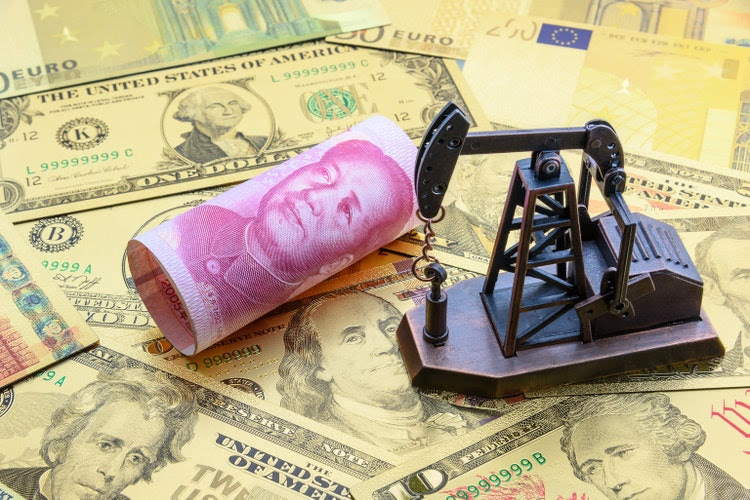•Experts and analysts not terribly concerned about the prospect of China using Yuan to buy Saudi Oil
By Eric Olander
News that Chinese and Saudi Arabian officials are negotiating to use yuan instead of dollars to purchase oil sparked a surprisingly low-key reaction among political observers and market watchers. “While there has been some hyperventilating, the reaction is generally much less excited than it would have been,” said Peking University Finance Professor Michael Pettis in a five part Twitter thread.
Financial analysts were even more underwhelmed given the comparatively limited use of Chinese yuan around the world compared to the dollar, and the fact that the Chinese currency remains non-convertible and will likely stay that way for the foreseeable future. In essence, at least according to the analysts surveyed by Bloomberg, few saw this as a meaningful challenge to the dollar’s reign as the dominant global currency:
Reactions to Yuan-Denominated Oil Trade:
- CONVERTABILITY: “The yuan remains far from being a rival to the dollar at this stage. Nonetheless, it may encourage greater yuan use by other countries in trade and the share of yuan in trade is likely to grow. The fact that the yuan is not a fully convertible currency acts as a stumbling block” — Mitul Kotecha, chief emerging markets Asia and Europe strategist at TD Securities (BLOOMBERG)
- RECKLESS: “It would be reckless, given global oil pricing in dollars and the currency peg, not to mention the amount of Saudi debt priced in dollars, its reserve assets in dollars and their holdings of U.S. equities” — Karen Young, resident scholar at the American Enterprise Institute (REUTERS)
- SMALL-SCALE: “Even if we assume all Saudi-China trades switch to yuan, that is $320 million per working day versus the $6.6 trillion global daily FX market. Yet geopolitically this news is highly significant. First and foremost, it suggests China is preparing for possible U.S. sanctions” — Michael Every, global strategist at Rabobank (BLOOMBERG)
- BITTERNESS: “Countries are taking lessons from other countries or from their own bitter experience of the risks of relying entirely on the dollar” — Li Weijian, research fellow at the Shanghai Institutes for International Studies (GLOBAL TIMES)
SUGGESTED READING:
- Wall Street Journal: Saudi Arabia Considers Accepting Yuan Instead of Dollars for Chinese Oil Sales by Summer Said and Stephen Kalin
- Bloomberg: Petro-Yuan Still Far-Fetched Even Amid Saudi Mulling Oil Deals
Credit | The ChinaAfrica Project

